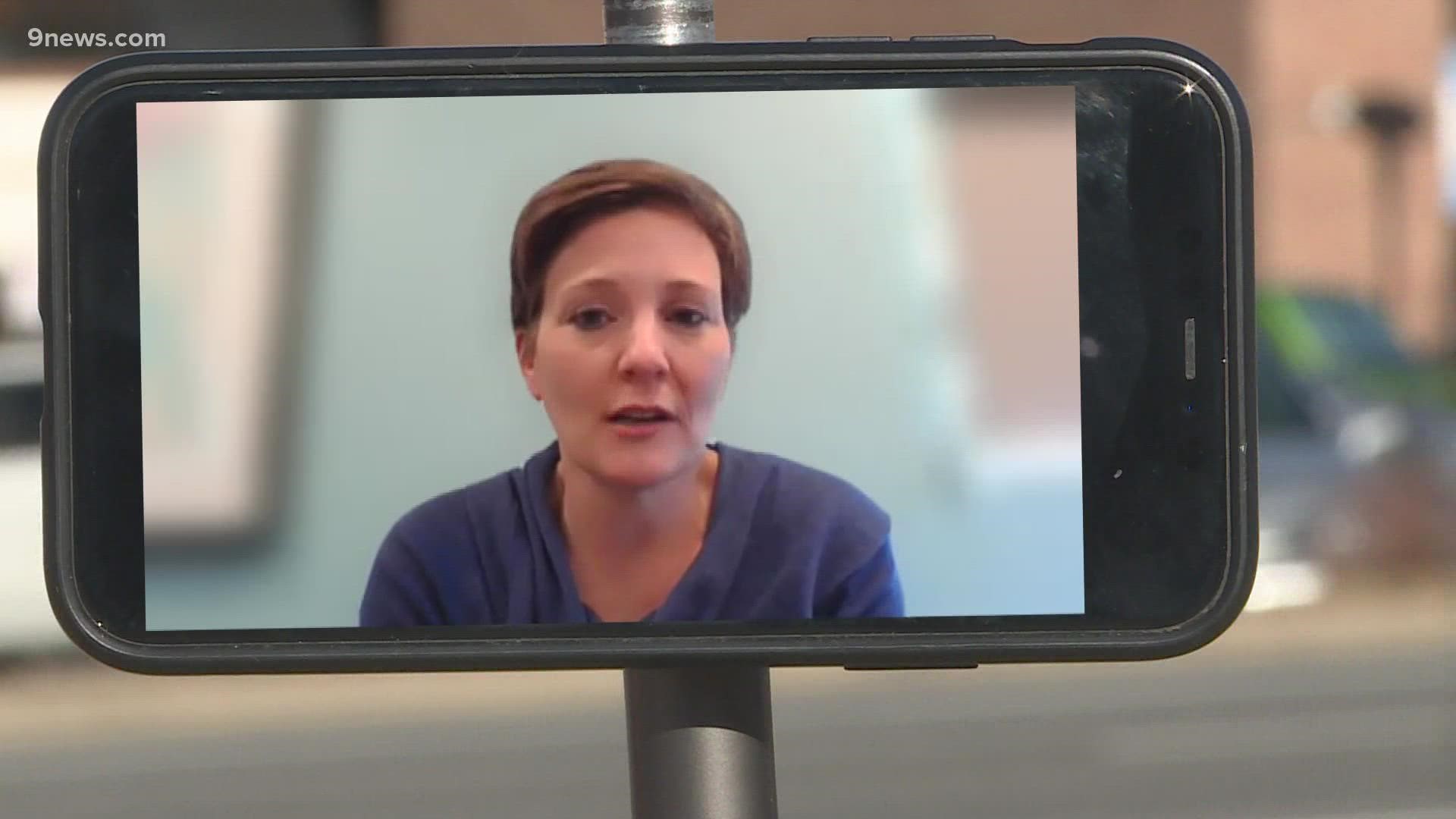DENVER — With hospital beds still at a premium, holiday gatherings coming up, and the inevitability of the omicron variant, Dr. Amy Duckro is concerned.
"This is a very threatening situation," Duckro said. She is the infectious diseases specialist for Kaiser Permanente.
"The biggest challenge of getting a booster is not vaccine supply, but rather the number of people who want boosters in a fixed period of time," Duckro said.
Dr. Michael Roshon is an emergency physician for Centura Health and vice president of research operations. He said the omicron variant only takes days to be dangerous in those who are vaccinated, but not boosted.
"So, in that three days, you can get the infection. It can start to replicate really quick. You can start to spread it and then your immune system kicks in in a few days. So, you never progress to severe disease but meanwhile, you might have spread it to seven or eight other people," Roshon said.
Duckro said the speed of the variant is the issue.
"That changes everything and that's why we're talking about boosters as being so important," Duckro said.
Both doctors believe hospital capacity is doing OK for now, but that can change.
"Now, is the time to start protecting from that surge that would lead to hospitalizations in two weeks to a month" Roshon said. "If we wait two weeks to a month, when the hospitals are full to start to respond, we will be too far behind."
Doctors said your holiday wish list should include a COVID booster.
"This is a very serious situation. We are already in a difficult spot with our hospital capacity due to COVID-19 and that can only get worse," Duckro said.
Denver's public health department said Monday that they have confirmed two cases of the omicron variant in Denver. Other Colorado counties have also detected the variant.
The health department said one of the cases is a man who is fully vaccinated and received a booster. The other is a woman who is fully vaccinated but has not received a booster. Both of them have reported mild symptoms, the health department said.
After a request for comment, the Colorado Department of Public Health and Environment sent an email which reads:
Coloradans who have received a COVID-19 booster are 47.5 times less likely to be hospitalized with COVID-19 than people who haven’t been vaccinated. Early studies have shown that booster doses of mRNA vaccines (Pfizer or Moderna) significantly improve the body’s ability to fight off omicron.
We continue our work to make vaccines and boosters easily accessible for all Coloradans. There are more than 1,800 vaccine providers in Colorado, and we recently expanded capacity at several of our large community vaccination sites to accommodate up to 1,000 doses on Fridays, Saturdays, and Sundays. In addition, we are sending text message reminders to more than 437,000 Coloradans aged 18 and older whose records in the Colorado Immunization Information System (CIIS) indicate they may be overdue for a booster dose and live near one of the state’s large community vaccination sites.
We still are learning about omicron, but we believe it is more transmissible. In addition to getting vaccinated and getting a booster as soon as possible, we urge all Coloradans and visitors to follow public health recommendations for testing when traveling to regions with high rates of COVID-19, including areas with the omicron variant. Anyone who has been exposed to a known positive case of COVID-19 should follow public health guidance for testing and quarantine. Coloradans and visitors experiencing symptoms of COVID-19 should get tested immediately and isolate. These prevention strategies are important for both vaccinated and unvaccinated Coloradans.
Earlier this month, CDPHE released holiday guidance that recommends the following for the holiday season:
• Plan a gathering where everyone over the age of 5 has been vaccinated – and those eligible for a booster have received it.
• Stay home if you are displaying symptoms of COVID-19, are
• positive for COVID-19, or have had recent close contact with someone with COVID-19.
• Wear a mask and practice physical distancing while shopping.
• If you can, use curbside pick up for groceries.
• Plan your shopping list so you can get everything done in a single trip. Going in a single trip not only saves you precious time; it also helps the environment and decreases your exposure to COVID-19.
• Ask your guests to test for COVID-19 before the gathering.
• There are free community testing sites all across Colorado.
• Consider hosting a smaller, shorter, outdoor gathering.
• Outdoor events are generally safer than indoor events; smaller groups are generally safer than larger groups; and shorter gatherings are generally safer than longer gatherings.
• Keep a list of guests and their contact information so they can be notified quickly in the event of a COVID-19 exposure.
• If gathering indoors, improve ventilation by opening windows and doors (if it’s safe to do so) or running your heat, AC, or an air purifier.
Additional recommendations and guidance are available from the Centers for Disease Control and Prevention.
Roshon said the smart thing for people to do is beat the rush, get the booster, and beat the virus.
"I would suggest if you would like to get your booster and not wait in line, get it today, I think you will find it much, much easier than you will in a few weeks," Roshon said.
SUGGESTED VIDEOS: COVID-19 Vaccine

